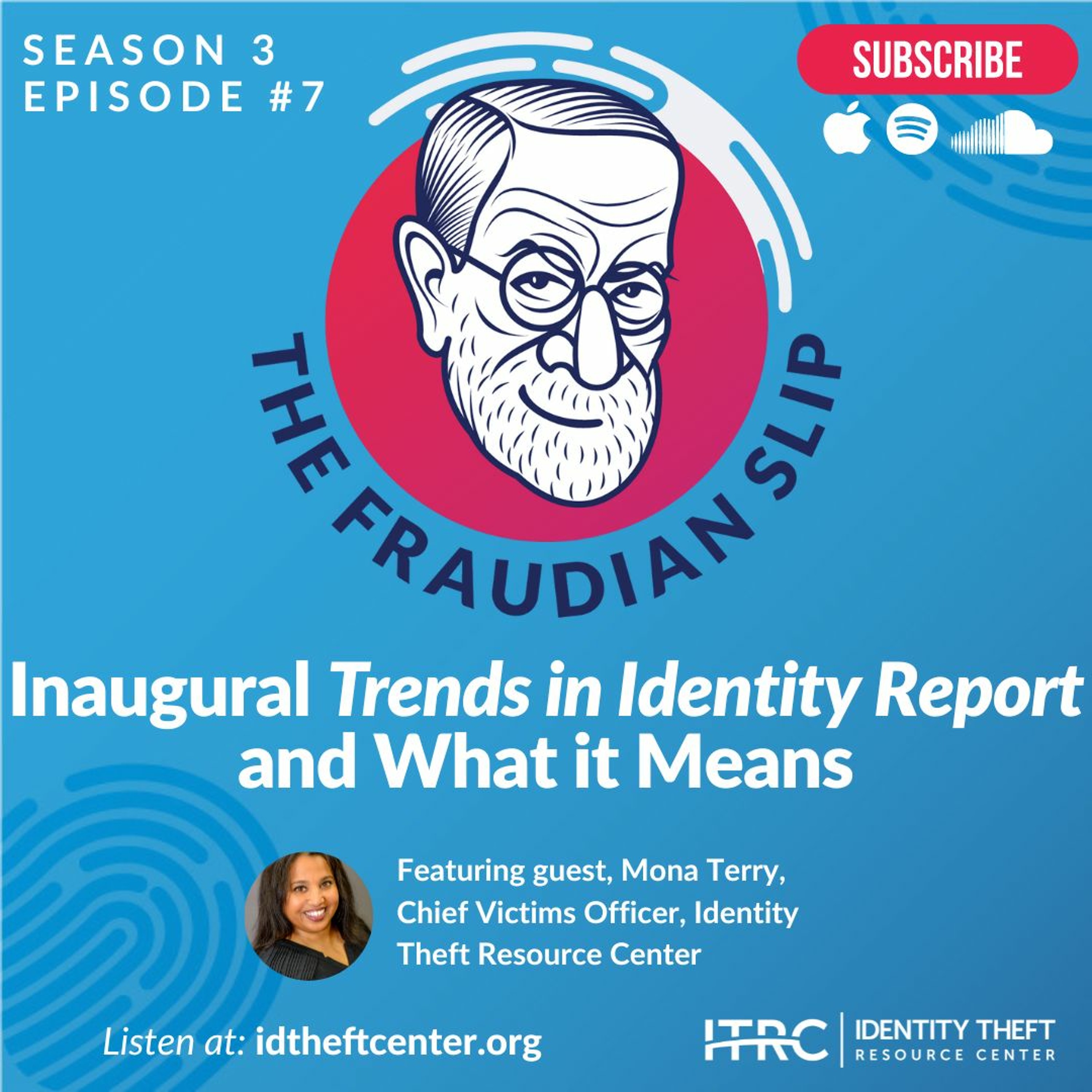For nearly 20 years, the ITRC has published reports about the impact of identity crimes on people. In 2005, we started publishing information about data breaches and the link to identity crimes. Last year, we published our first report on how identity crimes and cyberattacks impact small businesses and solopreneurs.
Show Notes
Follow on LinkedIn: www.linkedin.com/company/idtheftcenter/
Follow on Twitter: twitter.com/IDTheftCenter
Show Transcript
Welcome to The Fraudian Slip, the Identity Theft Resource Center’s (ITRC) podcast, where we talk about all-things identity compromise, crime and fraud that impact people and businesses. Listen on Apple, Google, Spotify, SoundCloud, Audible and Amazon now. In this episode, we discuss the ITRC’s inaugural Trends in Identity Report and what it means for consumers moving forward.
For nearly 20 years, the ITRC has published reports about the impact of identity crimes on people. In 2005, we started publishing information about data breaches and the link to identity crimes. Last year, we published our first report on how identity crimes and cyberattacks impact small businesses and solopreneurs.
However, there’s one set of data we’ve never shared – data collected directly from the victims of identity crimes we talk to every day. Add to that the people who call us seeking assistance to avoid becoming a victim of identity fraud or theft. That is, we’ve never shared this information publicly – until now.
This past week, the ITRC published its inaugural Trends in Identity Report that looks at identity crimes and victim concerns based on the stories – anonymous information – we hear each day.
In 2020, we identified a dramatic rise in unemployment fraud based on the number of people calling us daily. From fewer than 20 calls in all of 2019 to more than 20 per day in 2020. We saw the wave of benefit fraud weeks before the problem emerged in the national media.
In 2021, we noticed another kind of wave – a scamdemic, if you will. Again, from the same source – the victims of these crimes, telling us their stories in their own words in hopes of getting help restoring their identities and lives to normal.
We realized there was real value in being an early warning system – a canary in a coal mine – to help consumers, businesses, institutions and policy-makers have the information they need to respond to changes in identity crimes.
Here to talk about what’s in our inaugural 2021 Trends in Identity Report is the ITRC’s Chief Victim Officer, Mona Terry.
Mona Terry and Eva Velasquez discussed the following:
- Findings and highlights in the inaugural Trends in Identity Report
- What the trends mean
- What people can do to protect themselves
- You can download a copy of the ITRC’s 2021 Trends in Identity Report at our website www.idtheftcenter.org/publications.
Contact the ITRC
If you think you have been the victim of an identity crime or want to avoid becoming a victim, you can speak with an ITRC expert advisor on the phone (888.400.5530), chat live on the web or send us an email during our normal business hours (6 a.m.-5 p.m. PST Monday-Friday). Just visit www.idtheftcenter.org to get started.
Be sure to join us next week for our sister podcast, the Weekly Breach Breakdown.
Listen On
Also In Season 3
-
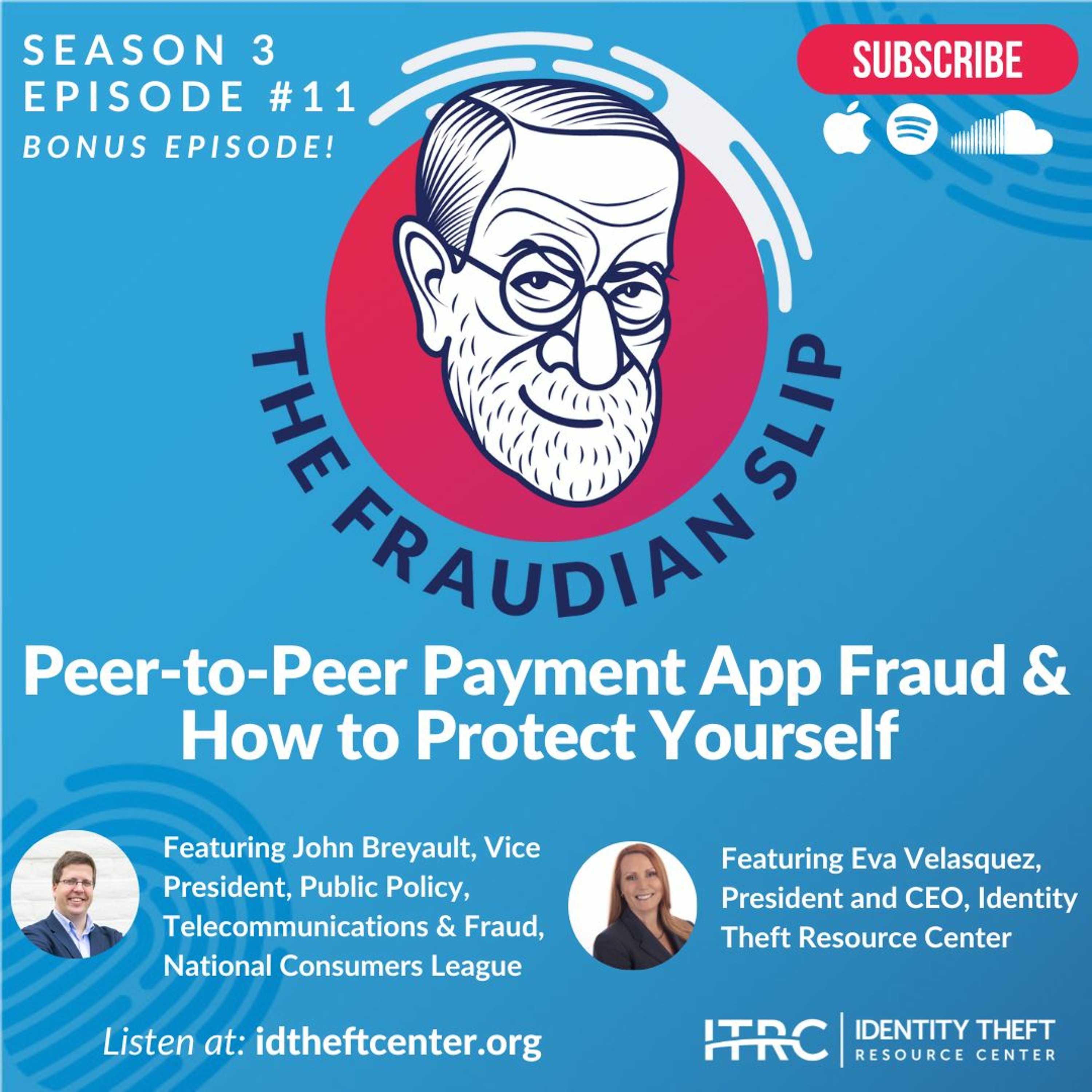
The Fraudian Slip Podcast ITRC - P2P Fraud
Welcome to the Fraudian Slip…the Identity Theft Resource Center’s podcast where -
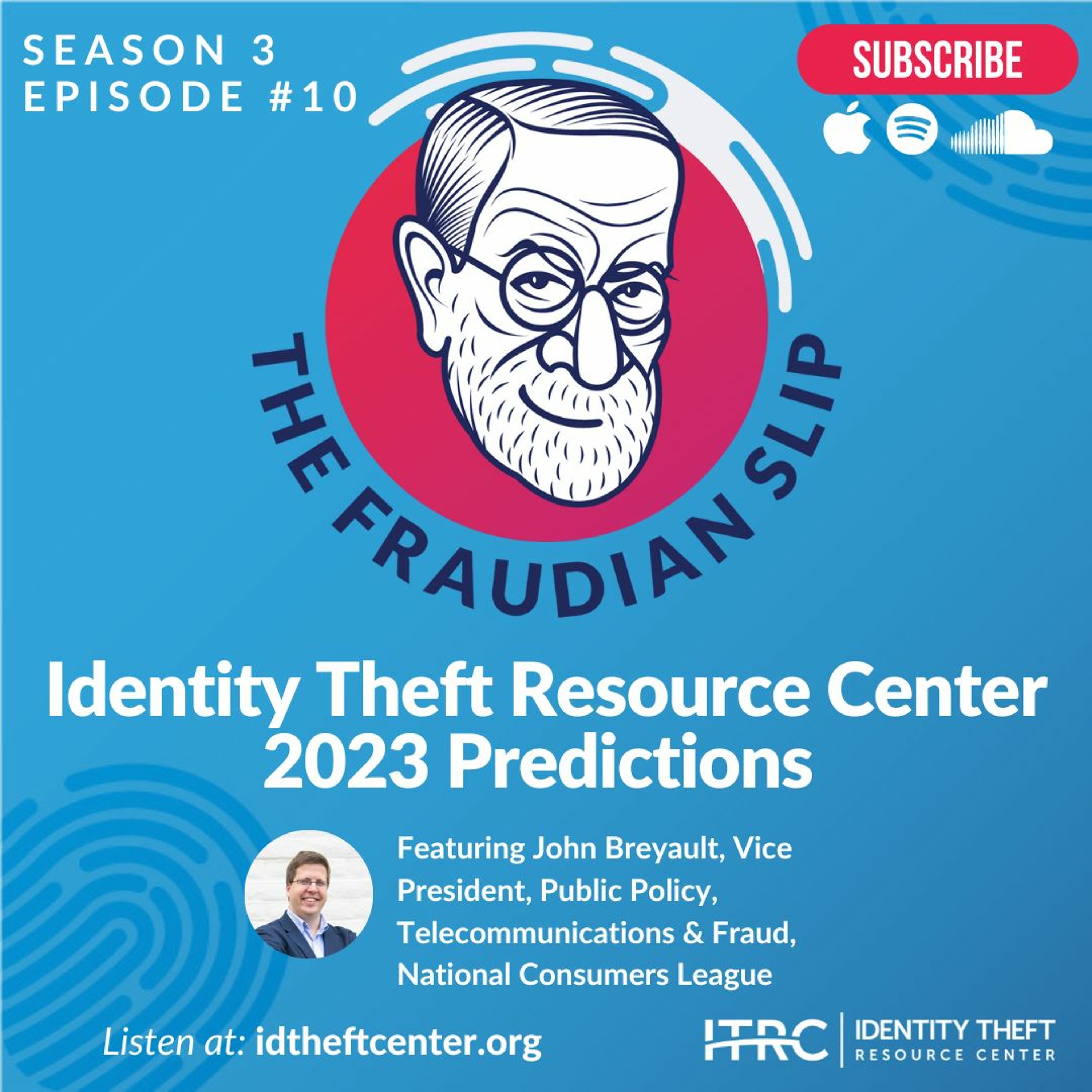
The Fraudian Slip Podcast ITRC - 2023 Predictions
Welcome to the Fraudian Slip…the Identity Theft Resource Center’s podcast where -
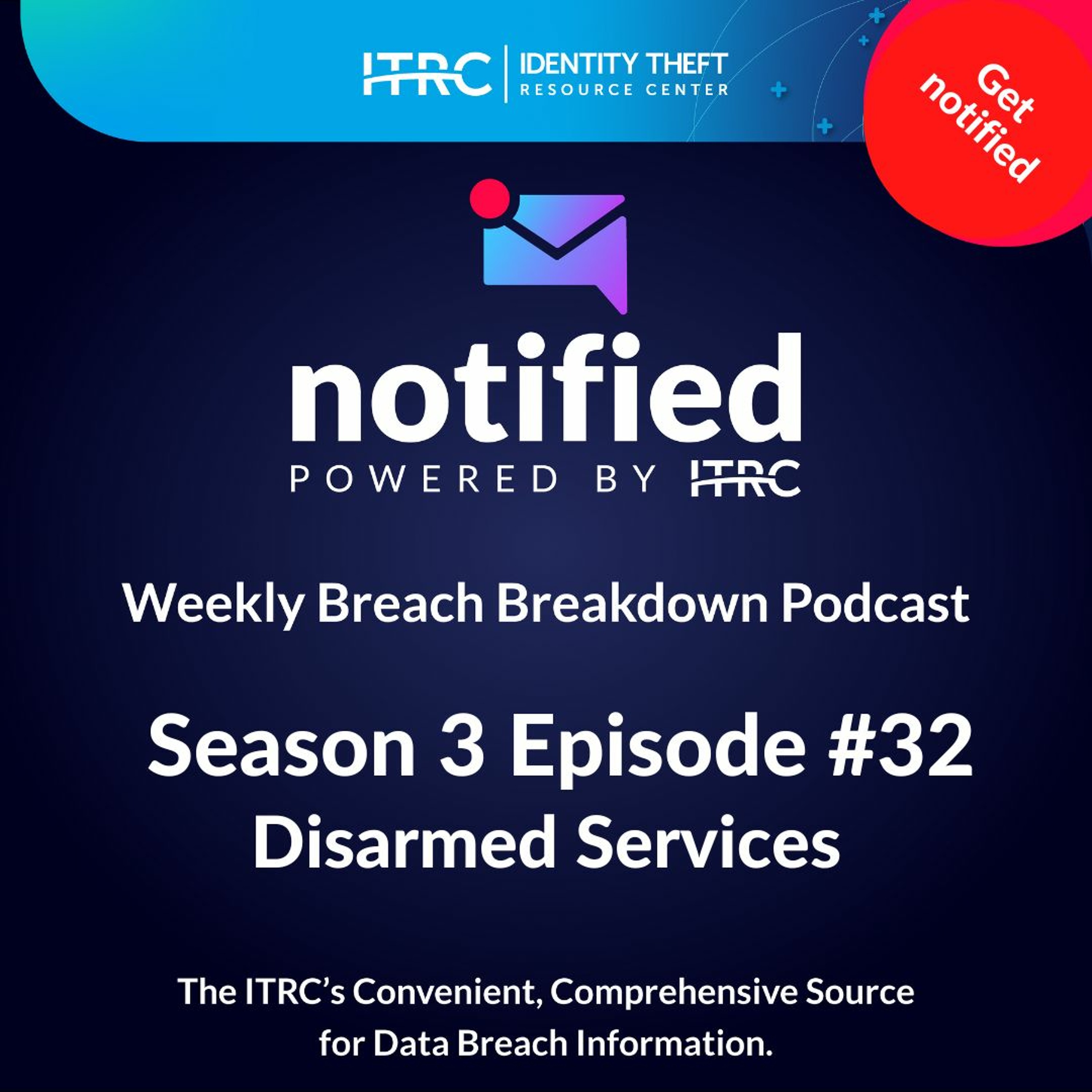
The Weekly Breach Breakdown Podcast by ITRC - Disarmed Services - S3E32
Welcome to the Identity Theft Resource Center’s Weekly Breach Breakdown for Nove -
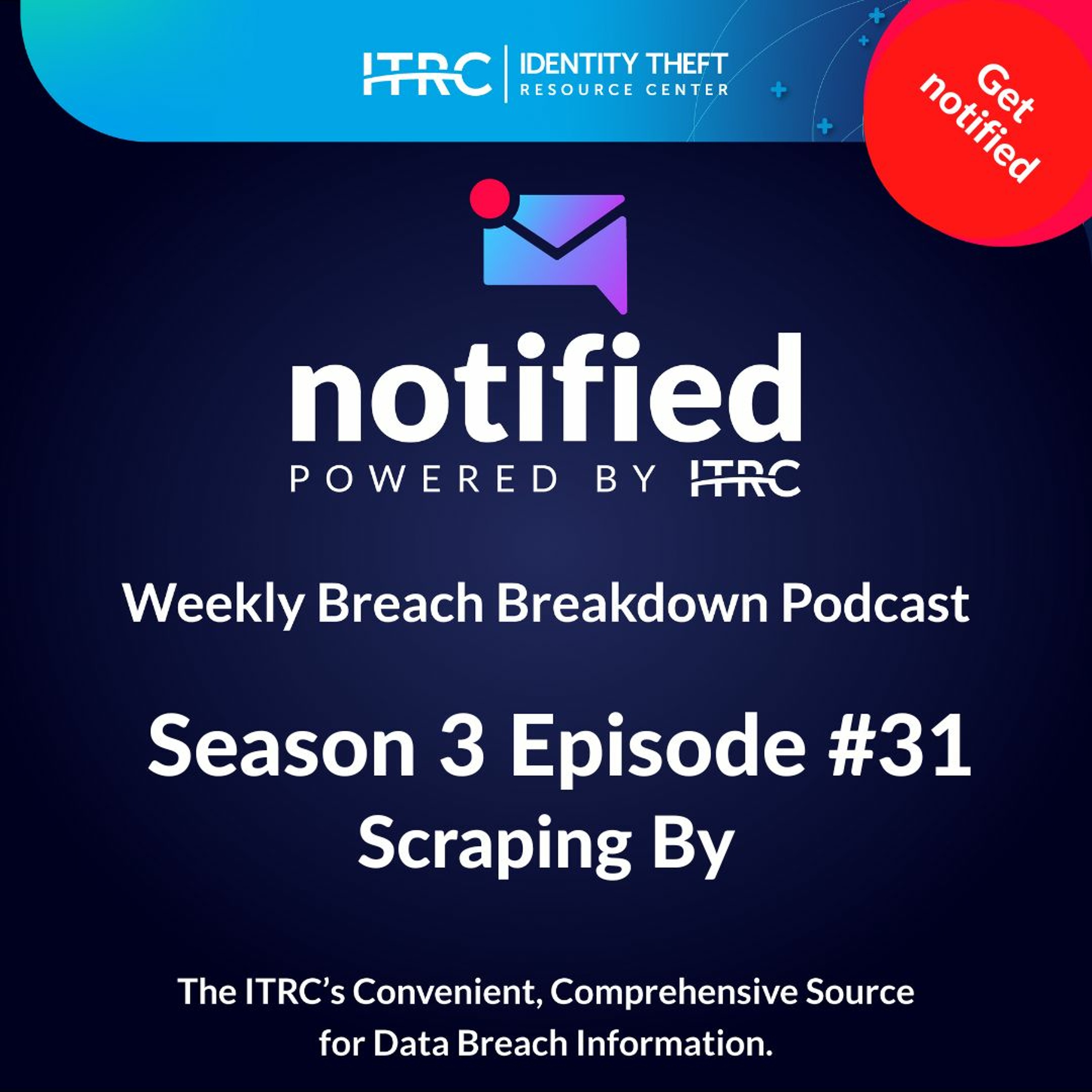
The Weekly Breach Breakdown Podcast by ITRC - Scraping By - S3E31
Welcome to the Identity Theft Resource Center’s Weekly Breach Breakdown for Nove
